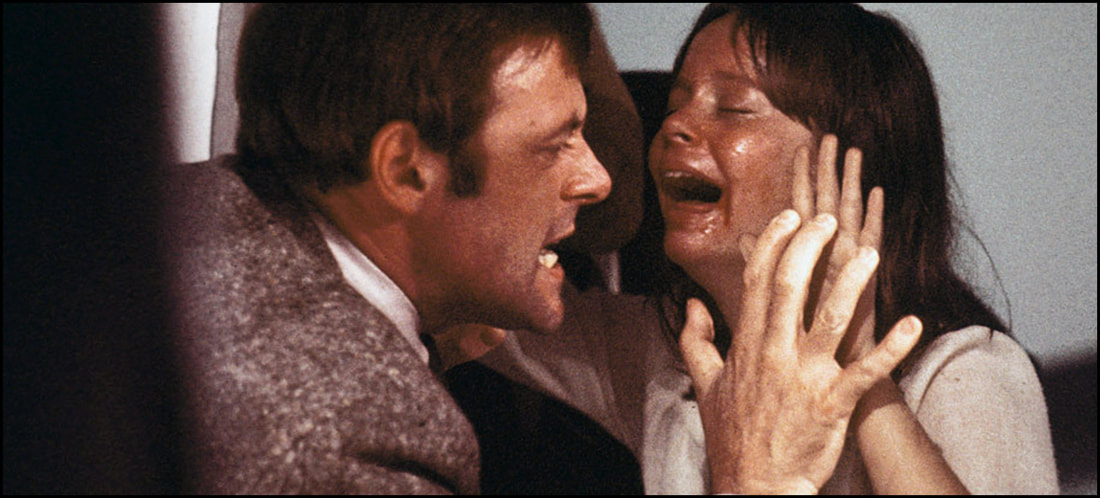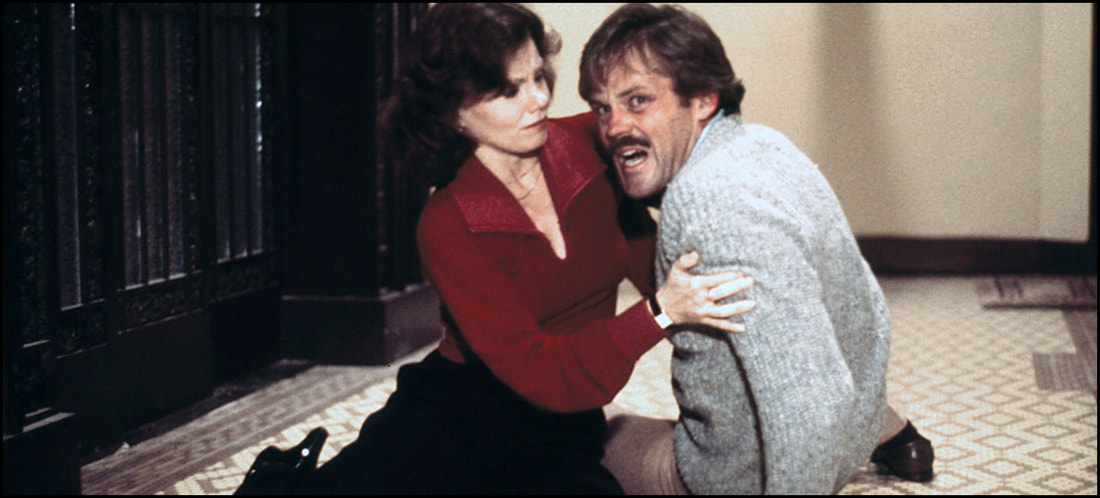As is often the case with older pictures of the somewhat bygone era, I’d seen bits and pieces of it from a variety of locales – late night television, cable channels, and probably a snippet or two on the screen of a local video store back in the days. Still, I’m quite certain I’d never seen all of it. Naturally, when and if I’m offered a screener of it for review consideration on SciFiHistory.Net, I jumped at the chance. While I’m glad I did, I’m going to say – right up front – that I’m not entirely certain this one will be as impactful with modern audiences. Like many of Wise’s pictures, it’s a bit slow – the director definitely took his time in crafting visual wizardry – and it only superficially introduces some supernatural elements into the narrative.
But I’m getting ahead of myself …
While it may not have won any awards or started in trend with studios scrambling to produce like-minded fare, Rose is still quite good in its own respects. In fact, it might be the kind of thing some newfangled Horror company might wanna pick up and try again someday, even if for no better reason to ratchet up the scares and get a few more butts into corner cineplex.
(NOTE: The following review will contain minor spoilers necessary solely for the discussion of plot and/or characters. If you’re the type of reader who prefers a review entirely spoiler-free, then I’d encourage you to skip down to the last few paragraphs for the final assessment. If, however, you’re accepting of a few modest hints at ‘things to come,’ then read on …)
From the film’s IMDB.com page citation:
“A stranger attempts to convince a happily married couple that their daughter is actually his daughter reincarnated.”
Reincarnation is a prospect I’ve only thought about in passing.
Honestly, the possible mechanics of where all of these souls could be coming from kinda/sorta escapes me. At some point, wouldn’t we have to have a bunch of new souls? Aren’t there more people alive today than there are past souls for them to fill? See what I mean? Somewhere in all of mental exercise, the existential math escapes me, so it is a subject I leave to those more cerebrally-inclined than I. Still, the premise fascinates me, and I think the script penned by the late Frank De Felitta – adapted from his own novel – presents the phenomenon in an entirely relatable way, perhaps even defusing skeptics who might otherwise look too closely at the supernatural trickery.
Ivy Templeton (played by Susan Swift in her screen debut) has spent her young life plagued by nightmares, nocturnal visions that grow increasingly disturbing each year close to her birthday. Bill (John Beck) and Janice (Marsha Mason) Templeton have given her a good life – along with visits to physicians and psychologists – in hopes of finding a solution to whatever troubles the girl’s psyche. When Elliot Hoover (in an incredibly heartfelt performance from the great Anthony Hopkins) enters their lives with the explanation that their Ivy’s soul is actually that of his deceased daughter Audrey Rose (she died in a violent car crash and wasn’t ‘allowed’ to cross over into Heaven), they’re obvious unconvinced. It isn’t until Hoover forces himself into their lives, witnesses a few of Ivy’s episodes, and the afflicted young lady begins responding to him that Janice starts wondering if there might be more to his suggestions than what she originally believed.
However, all was still not green within. While Rose as a picture is exceedingly comfortable raising questions about life and rebirth, it never quite finds an appropriate rhythm with which to balance all of its parts.
The set-up – especially the sequences involving Hopkins and his stalking the Templeton family – is handled quite expertly, as are the scenes of exposition wherein he tries to convince Bill and Janice of their daughter’s secret identity. But once is settles into the world of the paranormal, Wise does have to resort to a bit of screen trickery to push Janice into embracing Hoover’s possibilities. The second half involves a not-quite-legally-substantiated court case – Hoover’s on trial, but I’ll be honest in saying I’m not quite sure what the charges are exactly given his mounted defense is entirely dismissive of the charges and instead focuses on alleging Ivy’s soul is his property (thereabouts) – and his attempts to establish the girl’s identity through hypnotic regression. All of this is played out – to high drama, even – but it’s wrapped up with a somewhat somber and milquetoast coda wherein Janice has resigned herself to being almost happy that she’s lost her troubled daughter.
In fairness, I’m not sure what I expected, but I can only say I didn’t expect this. Mothers – the good ones, anyway – are never happy to lose their children. Such heartbreak leaves an emotional scar that never heals, and it’s a wound they carry to the end of their days. (Bill’s particular circumstances are a bit different, and to a degree his disillusioned mindset makes more narrative sense.) Mason plays it as though she’s entirely relieved that Ivy and Audrey are at peace, never quite expressing any measurable depth of mourning akin to a momma bear tragically losing her prized cub. All I can say is that the sentiment doesn’t feel right, making hers a curious screen exit.
Audrey Rose (1977) was produced by Sterobcar Productions. DVD distribution (for this particular release) is being coordinated by the good folks at Arrow Films. As for the technical specifications? Though I’m no trained video expert, I thought that the sights and sounds were quite good. (I was provided a screener copy for this review, so I’m unaware of whether or not the video was an all-new scan.) Lastly, if you’re looking for special features, then – as this is Arrow – you’re likely not going to be disappointed as the disc boasts an audio commentary track by critic Jon Towlson (I had some trouble getting it to play, the disc kept restarting for some reason); some promotional materials discussing the film as well as the subject matter and score; the theatrical trailer; and a bit more. As usual, it’s a grand collection that should keep you busy for hours.
Mildly Recommended.
While it’s definitely a bit dated, Audrey Rose (1977) is still a solid entry into the realm of fringe topics, though genre fans might be a bit disappointed with the slow, methodical pace of the script as well as the focus on marital melodrama as the tale unfolds. Still, the cast are quite good – young Susan Swift is quite convincing as the disturbed child – and it’s one of those rare cinema entries that tries to examine the prospects of reincarnation respectfully and authentically … with a bit of spookiness thrown in for good measure.
In the interests of fairness, I’m pleased to disclose that the fine folks at Arrow Films provided me with a complimentary Blu-ray screener of Audrey Rose by request for the expressed purposes of completing this review; and their contribution to me in no way, shape, or form influenced my opinion of it.
-- EZ



 RSS Feed
RSS Feed